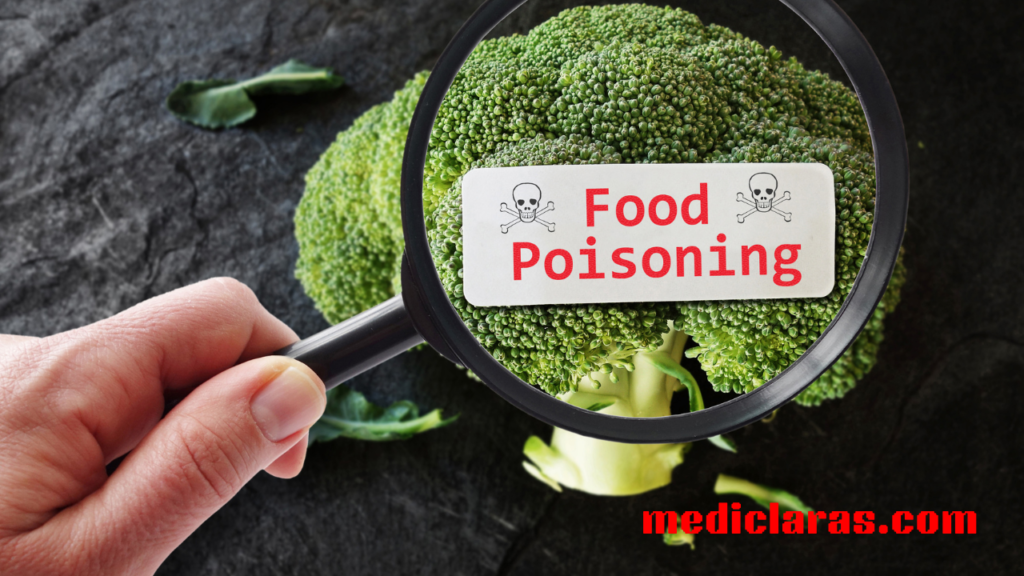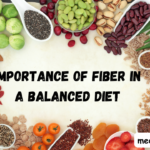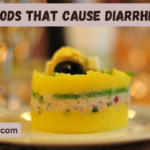Food Poisoning: Understanding its Symptoms and Management
Food poisoning refers to a disease caused by eating or drinking
contaminated food or water. When a person suffers from it he or she
needs to rest and drink a lot of water to recover from it.This article is
about food poisoning, its symptoms and management.
Understanding Food Poisoning
The infection or irritation of the digestive tract by eating contaminated
food or drinking water ,is referred to as food poisoning.
Food Poisoning mostly occurs due to foods or drinks that have been
impure with germs like virus ,bacteria and parasites.Sometimes , food
poisoning also happens due to ingesting dangerous chemicals.
Food poisoning commonly occurs quickly and does not last long, and most
individuals recover without any management.
But for some people ,food poisoning can last longer or cause serious
complications.
Aged individual
Baby and youngsters
Expecting mothers
Individuals with low immune response
These groups of individuals are more prone to develop serious signs and
complications.
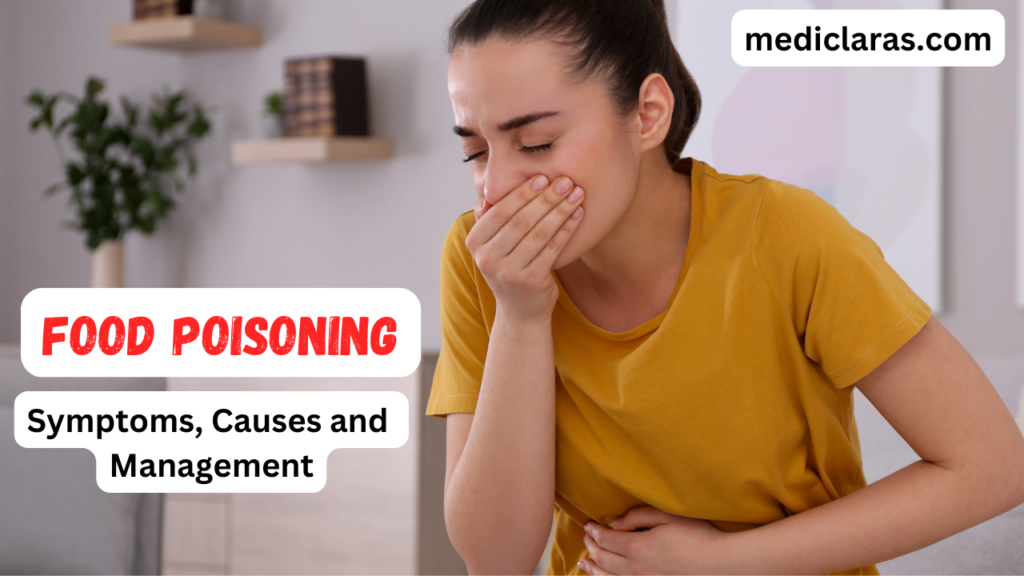
Food Poisoning Symptoms list
If one happens to experience food poisoning it is highly likely that case
will go unnoticed. This is showing the fact that symptoms change
depending on the source of infection. Most cases of food poisoning
include some of the following symptom:A food poisoning case may present with some of the following
symptoms:
● Cramps in abdomen
● Diarrhea
● Nausea
● Vomiting
● Appetite loss
● low grade fever
● Weakness
● Headache
Food poisoning symptoms that may lead to death include:
● Diarrhea lasting longer than 3 days
● A fever 102 °F
● Higher trouble seeing or speaking
● Severe dehydration symptoms like:
• Dry mouth
• Low urine output
• A person unable to drink
fluids.
Get medical help immediately if a person experiences any of these
symptoms.
Factors leading to food poisoning
Food Poisoning most commonly occur due to following three primary
causes:
Bacteria
Viruses
Parasites
All these germs can present nearly on all food items eaten by
humans.But in the cooking process the heat destroys all the germs
before food arrives at your table. Food poisoning most commonly occurs
by eating raw foods because they are not subjected to heat.Occasionally,food is contaminated with pathogens either in fecal matter
or vomit. This mostly occurs in cases when a person who is sick with
fever or diarrhea prepares food without first washing his hands.
Commonly contaminated foods are:
•Meat
•Eggs
•Dairy products
•Water
Bacterial Factors
At a temperature range of 40 – 140° F bacteria grow quickly in food .To
reduce the risk of foodborne illness ,set the refrigerator temperature at
less than 40° F. When you cook food,make sure to cook it well at a
temperature greater than 140° F because this temperature destroys
most of the bacteria.
Following are the main bacteria responsible for foodborne illness:
● Campylobacter ,they are present in poorly processed foods or
drinks.
● Escherichia coli present in raw vegetables and improperly cooked
meat.
● Listeria present in soft cheese.
● Staphylococcus aureus
● Clostridium causes botulism present in preserved or fermented
foods .
● Vibrio present in raw or undercooked seafoods.
Viral Factors
Infection with a virus can occur by drinking unsafe water,washing food
with contaminated water . The virus responsible for food poisoning are:
•Norovirus
•Hepatitis A virus
•Rotavirus
•Astrovirus
Parasites
Food Poisoning by parasites is not common as compared to by
parasites. Following parasites are responsible for food poisoning:
•Toxoplasma gondii
•Cryptosporidium
•Giardia
Alternatively food poisoning can also occur as a result of consuming
food contaminated with harmful chemicals,such as :
● Certain types of wild mushrooms
● Fish or shellfish with toxins from algae or bacteria.
● Chemical pesticides present on the surfaces of unwashed
produce.
Management of Food Poisoning
Home cures for food poisoning
Following home remedies proves helpful to prevent dehydration and
ease symptoms of food poisoning.
Stay Hydrated
Due to vomiting, diarrhea or fever in food poisoning a significant loss of
fluid occurs in a short time.As a result of dehydration,you may feel
fatigued or weak and your heart may start to beat irregularly.If not
treated at time, it can lead to death, especially in young children and
older adults.
So maintaining hydration is essential to support the body while it strives
to combat the infection. Consume fruit juices and coconut water to
restore fluids and electrolytes.some soothing herbs tea like chamomile
and peppermint also help to calm an upset stomach.
Utilize over the counter drugs
To suppress nausea and vomiting over the counter drugs such as
loperamide and pepto- Bismol are used.
Regardless, always check with the doctor before initiating treatment with
these medications. Consult with the doctor if symptoms get severe.
Get Rest
It is important to get rest to support the body while it is fighting the
infection.
Eat easily digestible food
On the first day of symptoms Consume water ,clear broth,diluted fruit
juices or decaffeinated drinks to your body and maintain electrolytes.
Eat easily digestible or bland foods when you are able to eat or drink
again . Consume BRAT diet ,as it is suitable for your stomach ,reduce
diarrhea and restore electrolytes that are lost through vomiting.
BRAT diet includes:
Banana
Rice
Applesauce
Toast
Include Probiotic Foods
Naturally bacteria is present in our body ,out of which some are
good,while others are harmful. Our body needs good bacteria to digest
food.
Food Poisoning can disturb the natural balance of these bacteria within
the gut. Probiotics are beneficial bacteria similar to those that are living
in your gut. Taking probiotics can restore the balance of the gutmicrobiome and improve the digestive system. After feeling better,add
yogurt to your diet to maintain a healthy gut micro biome.
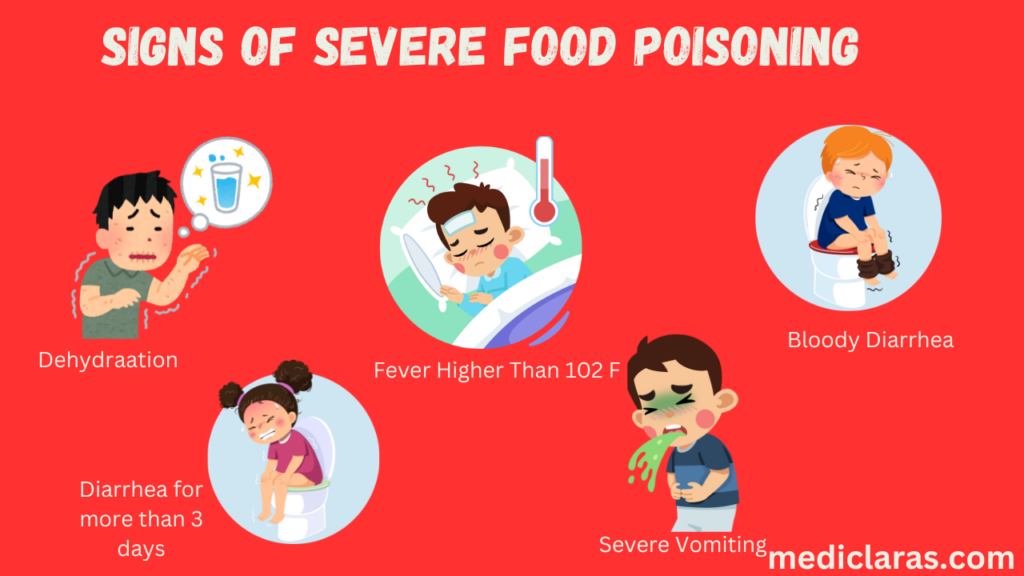
Medication to manage Food poisoning symptoms
Treatment of food poisoning depend on the cause . If food poisoning
caused by bacteria or parasites ,your health care provider may prescribe
antibiotics, antiemetic or anti parasitic.
Antibiotics
The doctor may prescribe the following antibiotics:
● Ciprofloxacin
● Azithromycin
● Rifamycin
● Rifaximine
Antiparasitic
If parasite is the cause of food poisoning, doctor may prescribe the
following antiparasitic drugs:
● Metronidazole
● Tinidazole
● Albendazole
Antiemetic
For serious vomiting,your dic6may prescribe following medication:
● Chlorpromazine
● Metoclopramide
Antidiarrheal
To prevent diarrhea, following drugs are prescribed:
● Loperamide
● Bismuth sub salicylate
Measures to Prevent Food Poisoning
Some measure are followed to prevent food poisoning.These are
following:
● Hand Hygiene: Always wash your hands with soap and water for
20 seconds. Wash hands before and after food handling,after
using the toilet and before eating.
● Wash raw fruits and vegetables: Always wash the fruits and
vegetables before using them .
● Wash dishes and utensils: Thoroughly wash the utensils,knives
and cutting boards before using them.
● Avoid raw or undercooked meat: Make sure that meat has been
cooked properly by using a food thermometer.
● Refrigerate: Properly refrigerate the leftover in a covered
container. Leftovers can be safely refrigerated for 3-4 days .
● Separate: place raw meat, poultry and seafood separated.
● Reheat: Reheat the leftover properly.cook it at its internal
temperature. If food seems to be spoiled,throw it away.
Foods you should eat
You should avoid consuming solid foods until vomiting and diarrhea is no
longer occurring. To reintroduce a normal diet you should try to eat bland
foods that are easily digestible. Like
Toast
Banana
Rice
Vegetables boiled
Chicken broth
Diluted fruit juices
Oatmeal
Potatoes blended
Foods you should avoid
Some foods aggravate the symptoms of upset stomach,try to avoid the
following difficult to digest foods:
Greasy foods
Fried items
Seasoned products
Spices
Sugary beverages
Dairy items like milk or cheese
Also avoid caffeinated beverages
Final Thought
Food poisoning is an illness occurring due to consuming contaminated
foods or drinks. Pathogens in the food cause inflammation of the
stomach also known as Gastroenteritis.
The best way to treat food poisoning is rest and getting enough fluids to
maintain hydration.Most food poisoning will go away on its own.But if
symptoms get worse or your immune system is weak ,consult your
doctor immediately.

